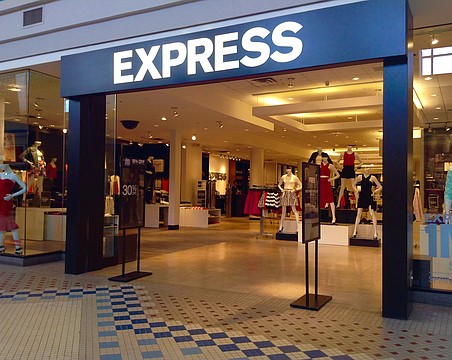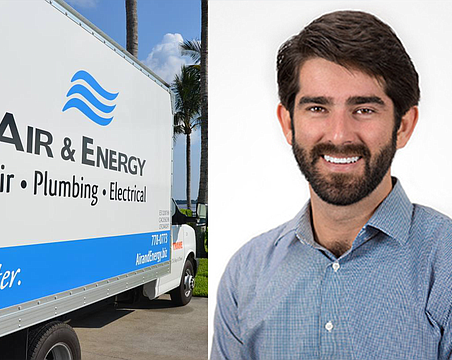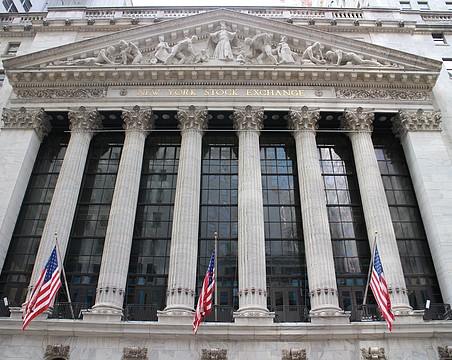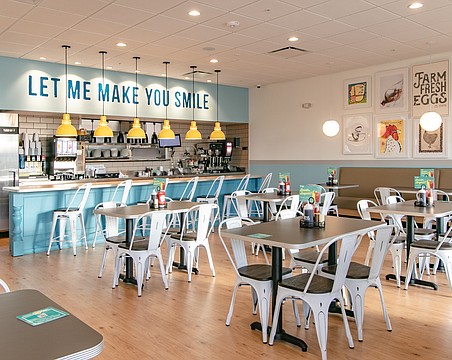Banks headquartered on the Gulf Coast are finally starting to look healthier.
From Pasco to Collier counties, a majority of the banks headquartered in the region reported greater profits in the first quarter compared with the same quarter a year ago, according to Federal Deposit Insurance Corp. data compiled by the Business Review (See bank charts at the bottom of the page).
Collectively, the 53 banks on the Gulf Coast reported net income of $52 million in the first quarter, a significant jump from the $14 million they reported in the same quarter in 2011.
The number of banks that were profitable grew, too. Thirty-nine banks reported profits in the first quarter compared with 27 banks in the same period last year.
Gulf Coast banks are also lending more money, data shows. Total assets grew to $23.9 billion in the first quarter, a 17% increase over the same period one year ago.
“We're starting to see a little bit of loan demand,” says Bill West, president of the Bank of Tampa. “It's all getting better.”
Bank of Tampa is expanding to Pinellas County. “We think the economy is good enough to grow our bank,” West says.
Some banks are even expanding out of state. FineMark National Bank & Trust recently expanded to Scottsdale, Ariz. “Our desire was to open the bank out of state to have a national presence,” says Joseph Catti, the bank's president and CEO.
“I'm not overly confident about an improved economy,” Catti notes, cautioning that the key is to hire experienced bankers who can generate earnings despite the sluggish recovery.
Better returns
In some cases, some positive earnings have come from areas outside of lending. Because of the meager interest margins, many banks have turned to other businesses to generate profits.
For example, FineMark recorded gains from sales in its bond portfolio as prices on those securities have risen and from non-interest income generated by management fees on the $800 million in trust assets it manages for clients.
Some banks have different business models entirely. For example, Tampa-based TCM Bank provides credit-card payment services to community banks and it ranks near the top of Gulf Coast banks by measures such as return on assets and return on equity. It doesn't lend money to individuals or businesses (see Plastic Power for full story).
Paul Weston, the CEO and president of TCM Bank, says he expects other traditional community banks on the Gulf Coast to show more positive returns on assets and equity in the future. “I think things next year will normalize. I don't think we will be at the top of the list forever,” he says.
Bankers say they're seeing more creditworthy customers who can pass muster on much stricter loan requirements. “We're not doing loans betting on the fact that real estate will improve,” says Gary Tice, chairman and CEO of First National Bank of the Gulf Coast. “The borrowers have to provide us with more than in the past.”
Tice says loans today are less tied to collateral and character and more on whether the project can generate cash flow. “The bankers are smarter today,” Tice says.
Real estate values in some areas could decline further, Tice says. For example, he notes that Tampa commercial real estate could fall another 10%. “You don't know when it's going to hit bottom,” he says.
More consolidation
While profits have improved at many community banks on the Gulf Coast, returns are likely to continue to be subpar relative to previous economic recoveries.
The reasons for this are many. Low interest rates and competition are pressuring interest margins, it's expensive to comply with increasingly burdensome government regulations, and technology costs have ballooned because customers demand services such as Internet banking. “We have yet to experience Dodd-Frank,” says Tice, referring to the federal government legislation that will create even more restrictive regulations than before.
As a result, investors in smaller community banks are unlikely to see the kinds of returns they were used to before the recession. Tice says “you'll be doing very well” with return on equity of 10%, in contrast with 15% or more before the downturn.
Bank valuations are likely to remain depressed as a result. “What's weighing on banks right now is the lack of capital as well as weariness from the stress of running a bank through the worst recession we've ever had,” says David Seleski, president and CEO of Stonegate Bank in Fort Lauderdale, which so far has acquired four banks on the Gulf Coast during this downturn.
“People are realistic that the days of the huge multiples are gone,” Seleski says. “They don't see the pot of gold at the end of the rainbow.”
For example, Louisiana-based IberiaBank recently announced plans to acquire Florida Gulf Bank in Fort Myers, agreeing to pay 1.4 times book value for the community bank. That's more than what Florida banks have been trading for lately, but relative to pre-bust deals of two to three times book value it looked like a bargain.
The challenge of raising capital will likely force smaller community banks to find buyers. Without capital to grow to at least $500 million in assets or larger, community banks on the Gulf Coast will have a tough time providing returns to shareholders because of growing regulatory and technology costs.
Gulf Coast Banks and Thrifts


CHART CHANGES
• In April 2011, Superior Bank NA assumed all of the deposits and most of the assets of Superior Bank. The 2011 period reflects the new combined company.
• Ovation Holdings Inc. purchased National Bank of Southwest Florida and four branches of Houston's Encore Banks NA to create Encore National Bank of Port Charlotte.
• Early in 2011, Bradenton-based C1 Bank, formerly known as Community Bank
& Co., acquired Pinellas Park-based First Community Bank of America.
• USAmeriBancorp Inc. merged Clearwater-based USAmeriBank with Alabama-based Aliant Bank, in July.
• American Momentum Bank purchased Southshore Community Bank of Apollo Beach and LandMark Bank of Sarasota in July from the FDIC.


















